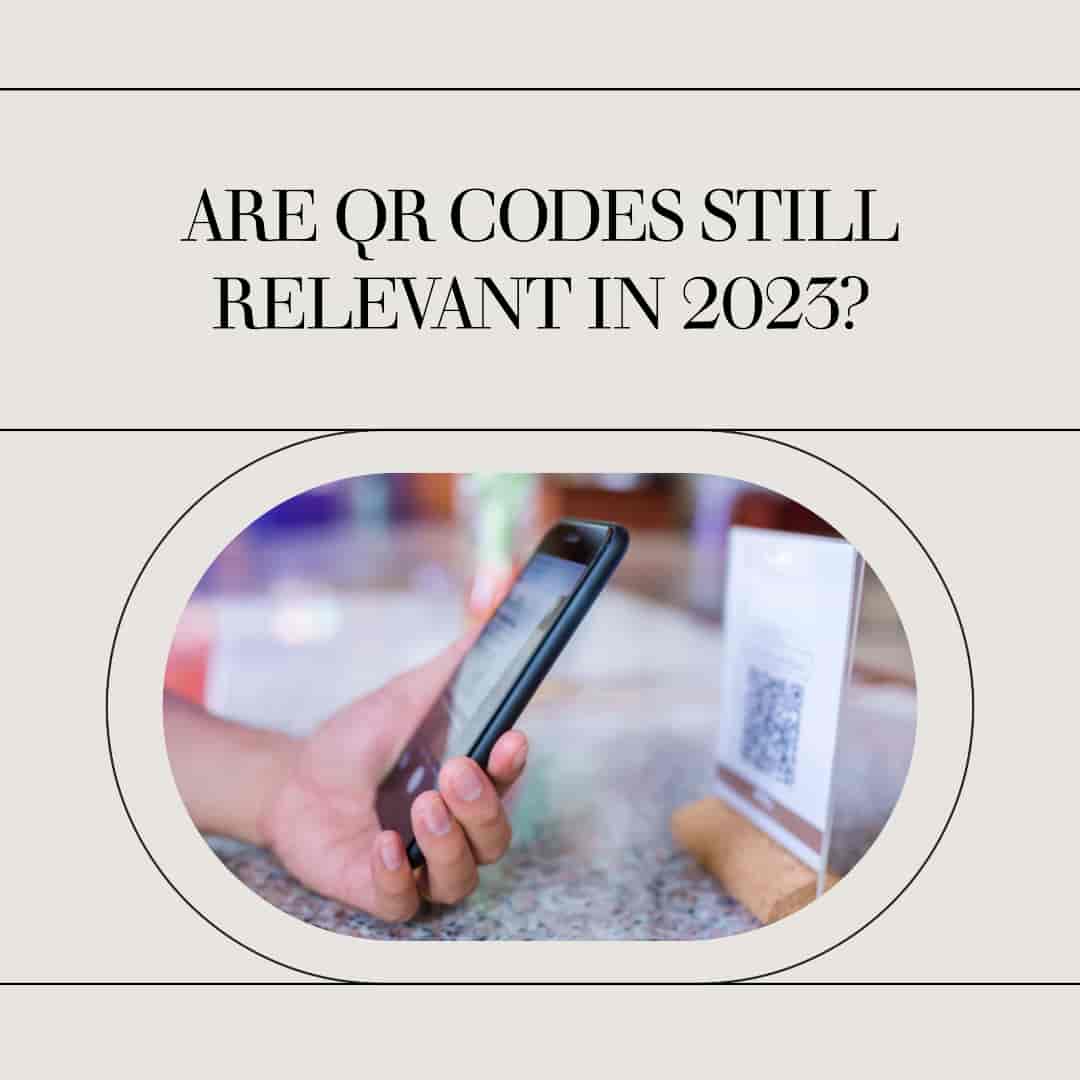In the early 2010s, when QR (Quick Response) codes began their proliferation, many speculated that their existence would be short-lived, a mere technological phase soon to be forgotten. Yet, here we are in , and the conversation still revolves around their pertinence. Are QR Codes still relevant in ? The short answer is a resounding 'Yes', and this article seeks to elucidate the whys and hows behind their lasting dominance.

A Brief Retrospective: The QR Code Evolution
Originating in Japan in the mid-90s, QR codes were initially designed for the automotive industry. Over the years, their application spread across various sectors, driven primarily by the universalization of smartphones. The simplicity of scanning a code to retrieve data was groundbreaking. Learn how to scan qr code through this aricle.
What Makes QR Codes Tick in ?
QR codes continue to be a preferred medium for several reasons:
1. Contactless Interaction: In a world reshaped by the pandemic, contactless solutions are not just preferred but essential. QR codes champion this touch-free revolution. They act as a bridge between users and the digital realm, offering a safer means to transact or access data without any tactile interaction. According to the World Health Organization, minimizing touchpoints can help reduce transmission risks, making QR codes a health-conscious choice.
2. Ease of Use: The ubiquity of smartphones has transformed our access to information. Simply point your device's camera at a QR code, and voila! Information is at your fingertips. This seamless process requires no additional apps or software, ensuring even the least tech-savvy individuals can use it effortlessly.
3. Versatility: The capabilities of QR codes extend far beyond mere URLs. They can encapsulate texts, vCards, or even directions to launch specific applications. This versatility means they cater to diverse needs, from simple data sharing to more complex tasks, proving their adaptability in the digital age.
4. Cost-effective: For businesses big or small, budgeting is pivotal. QR codes, with their minimal production cost, offer an economic avenue to connect with audiences. There's no need for elaborate setups or infrastructure. A simple print or digital display can integrate these codes, making them a go-to for budget-conscious entities.
Integration into Modern Technology: From Payments to AR Experiences
One might assume QR codes have remained stagnant. Yet, their integration into modern tech showcases their adaptability. Consider, for instance, how they've melded with Augmented Reality (AR) for enhanced shopping experiences or with blockchain for secure transactions. There's also the rising trend of interactive QR codes in gaming and entertainment.
Health, Safety, and QR Codes: An Unbreakable Bond
Since the pandemic outbreak, health codes embedded in QR formats have become instrumental. Countries like China and Australia initiated QR-based health passes, an idea other nations soon adopted. It's not just about health clearance either; vaccine passports, medical records, and contact tracing have all seen QR integrations. According to the World Health Organization, QR codes play an invaluable role in health and safety protocols across countries.
Businesses Leveraging QR Codes: Beyond Just Menus and Payments
QR codes are no longer restricted to fancy restaurant menus or easy payments. Their presence is noted in:
Marketing Campaigns: QR codes swiftly direct users to exclusive promotions. This instant access increases conversion rates and enhances the user experience, making campaigns more effective and interactive.
Product Authenticity: Luxury brands often employ QR codes as anti-counterfeit tools. By scanning, customers can verify product authenticity, ensuring they receive genuine items and bolstering brand trust.
Customer Service: QR codes streamline customer support. A simple scan can connect users to chatbots or human representatives, offering immediate solutions and elevating service quality.
Feedback and Reviews: To enhance product or service quality, businesses use QR codes for instant feedback collection. This immediacy facilitates real-time improvement, fostering customer loyalty.
Challenges Facing QR Code Technology
No technology is without its challenges. For QR codes, these primarily revolve around:
Security Concerns: There's an increasing risk of deceptive QR codes leading users to malicious sites. Cybersecurity agencies often advise caution, urging users to scan only trustworthy codes.
Over-saturation: The surge in QR code usage by various brands might result in consumer fatigue. It's crucial for businesses to ensure their QR-driven content offers real value to stand out.
Tech Disparities: In areas with limited smartphone access, the effectiveness of QR codes diminishes. Businesses must consider regional tech capabilities when implementing such strategies.
The Future of QR Codes: What Lies Beyond ?
Given their current trajectory, QR codes are likely to persist beyond this year. However, as with all technologies, evolution is inevitable. Whether it's enhanced security measures, deeper integration with emerging tech, or a pivot towards more interactive experiences, QR codes will undoubtedly adapt to the demands of the times.
In conclusion, while skeptics might have dismissed QR codes as a fleeting trend, their adaptability, cost-effectiveness, and wide-ranging applications have cemented their place in our digital ecosystem. As unfolds, it's clear that QR codes are not just relevant but pivotal in shaping our interactions in both the digital and physical worlds.